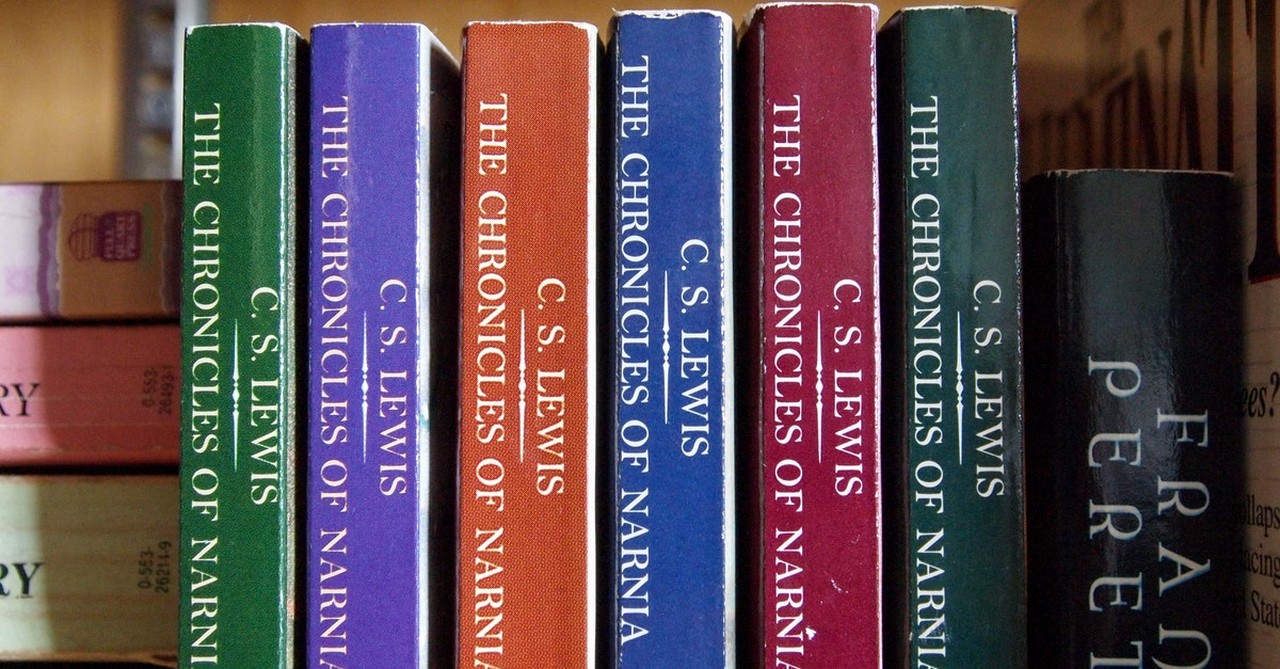
The Abolition of Man is one of Lewis’ most challenging philosophical works. Since it is a work of scholarship, it was not written in the vernacular as Mere Christianity, The Problem of Pain, and Surprised by Joy. Readers who have taken up the challenge have found it worthwhile, for the book is very prophetic about our postmodern culture.
Reading Lewis’ The Abolition of Man requires great effort and reflection. Many of Lewis’ admirers and many Lewis scholars have stated that it is one of his most challenging but vital works. Lewis’ friend and fellow Inkling Owen Barfield praised it as one of his most important books.
Further Reading: 10 C.S. Lewis Books You Haven’t Read Yet
Photo Credit: ©GettyImages/kot63
When Did C.S. Lewis Write The Abolition of Man?

When Did C.S. Lewis Write The Abolition of Man?
SLIDE 1 OF 4
The Abolition of Man was based on Lewis’s lectures at the University of Durham in 1943. The lectures became published as a book that same year.
What prompted Lewis to write the book? As a lay theologian, Lewis read modern writings to be up to date on the predominant philosophy that impacted people’s daily lives. After reading a book published in 1939 called The Control of Language: A Critical Approach To Reading and Writing by Alexander King and Martin Ketley, Lewis was deeply troubled by the dangerous ideas of moral subjectivism the two writers conveyed in the book. Moral subjectivism is a philosophy that rejects the view of there being an objective moral law given by God to humanity. In Lewis’s argument, the view is self-refuting because human beings make objective moral good and bad decisions every day, thereby acknowledging there is a standard that transcends different times and cultures.
As a Christian, Lewis cared about the impact of ideas on culture. Many of his academic colleagues at Oxford criticized him for becoming a popular Christian writer. They encouraged him to be quite private about his faith. Being a deeply devoted Christian whose faith encompassed all of life, Lewis rejected their dissuasion.
Being quite alarmed by the idea of moral subjectivism in the small book, Lewis responded with a critique of why he believed in objective truth. Though The Abolition of Man does not defend Christian theism as Lewis does in books like Miracles, The Problem of Pain, and Mere Christianity, it is an important philosophical work urging readers to guard against moral relativism.
Further Reading: C.S. Lewis: An Adventure in Faith
Photo Credit: Unsplash/Aaron Burden
What Are C.S. Lewis’ Main Ideas in The Abolition of Man?

What Are C.S. Lewis’ Main Ideas in The Abolition of Man?
SLIDE 2 OF 4
The Abolition of Man is divided into three chapters. In the first chapter, Lewis takes to task the two writers, Gaius and Titius, critiquing their example of someone remarking on the beauty of a waterfall which they call simply a statement about how it made them feel instead of the experience being objectively beautiful. Lewis viewed this remark as erroneous and saw how this dangerous subjectivism that sees nothing objectively good in the world could affect someone’s metaphysics, ethics, and epistemology.
Lewis includes an appendix giving historical evidence of objective moral values. Lewis cites moral codes from Greek, Hindu, Jewish, Chinese, Christian, Norse, Babylonian, Irish, and many other cultures. This is the same argument Lewis gives in Mere Christianity about there being a transcendent moral law.
One of the main themes in The Abolition of Man is humankind’s attempt to conquer death and nature through technology. Instead of technology being used for good, it becomes a god because of human depravity. Through technocracy, people in power exploit, murder, cheat, and do whatever is necessary to have control.
Lewis contrasts the modern use of technocracy with the Tao. In Eastern philosophy, the Tao is the way of nature. It is the primitive force that humankind cannot control, even though it has been sought too many times throughout history and miserably failed.
A good modern example is the rise of AI (artificial intelligence). While some argue that AI benefits fields such as healthcare, even proponents admit it has the potential for grave misuse. It presents severe dangers if used without restriction or in ways that make humans too reliant.
Further Reading: 5 Books by C.S. Lewis that Everyone Should Read
Photo Credit: Getty Images/Eerik
How Does The Abolition of Man Connect to Other C.S. Lewis Books?

How Does The Abolition of Man Connect to Other C.S. Lewis Books?
SLIDE 3 OF 4
As a Christian, Lewis believed in objective truth, and in The Abolition of Man, he scathingly critiques the dangers of subjectivism and its logical outworking.
When Lewis wrote The Abolition of Man, England and many other Western countries were becoming more secular in their attitudes toward religion. In his career as a Christian apologist, literary critic, and fantasy writer, Lewis sought to write about the truth of Christianity through fairy tales, science-fiction, and non-fiction. He knew that millions of people were confused and seeking meaning. Through The Abolition of Man and other books, Lewis has helped people come to know Christ and not surrender to the spirit of the age.
Uncle Andrew and Queen Jadis, the villains in the Narnia book The Magician’s Nephew, present moral ideas that undermine objective moral concepts. They see themselves above everyone else, not subject to the moral code everyone must follow. They justify anything to get what they want. Throughout the story, they try to convince the protagonists, Digory and Polly, that Aslan’s law is questionable. At the end of the story, Aslan’s law, which reflects agape love, is proven to be good. Digory and Polly find freedom and joy in obeying Aslan’s will. Uncle Andrew and Jadis’ rejection of objective morality correlates to Lewis’ argument in The Abolition of Man.
In Perelandra, the villain Weston travels to Venus and then surrenders himself to paranormal powers in the name of progress. The powers are demonic and control him, making him the Un-Man. In a conversation with the hero, Ransom, the Un-Man argues that anything is justifiable, regardless of the sacrifice, if it is done in the name of progress. Being a believer in objective moral values, Ransom rejects this view and fights against the Un-Man. Ransom’s belief in objective truth correlates to Lewis’ argument in The Abolition of Man.
The sequel to Perelendra, the fantasy novel That Hideous Strength, was published in 1945. In the introduction, Lewis describes That Hideous Strength as a novel exploring the same ideas as The Abolition of Man. The story follows a cult called the N.I.C.E. using technology to create an evil utopia that will obliterate the Tao. In the end, the goodness of God—working through Ransom, his friends, and the resurrected magician Merlin—triumphs over N.I.C.E. In the Christian worldview, no matter how those in power use technology as a means for evil, the goodness of God always ultimately triumphs over it.
Further Reading: The Enduring Legacy of C.S. Lewis
Photo Credit: Pexels
Great Books for Studying The Abolition of Man

Great Books for Studying The Abolition of Man
SLIDE 4 OF 4
Lewis’ Space Trilogy is a great counterpart to his argument in The Abolition of Man. The three books were written in response to the subjective moral reasoning and scientific naturalism found in the works of a writer such as H.G. Wells.
Lewis appreciated the brilliance of Wells but strongly disagreed with his materialism and sought to write about other planets, beings, and the massive expanse of the cosmos from a Christian theistic worldview perspective.
Lewis scholar Michael Ward wrote an excellent guide to The Abolition of Man, published in 2021 as After Humanity. It gives insightful commentary on Lewis’ philosophical education and what led him to reject the postmodern view that there is no objective truth. Ward also gives a thorough context on the different philosophical ideas Lewis draws from in defending objective moral values.
Another excellent resource is Contemporary Perspectives on C.S. Lewis’ ‘The Abolition of Man’ edited by Timothy M. Mosteller and Gayne John Anacker, published in 2017. The book collects perspectives from Inklings scholars like Charlie W. Starr as well as philosophers like Judith Wofle and scientists like David Ussery exploring different facets of Lewis’ argument.
Further Reading: 10 Great Movies about C.S. Lewis and the Inklings
Photo Credit: Mahendra Kumar/Unsplash
Justin Wiggins is an author who works and lives in the primitive, majestic, beautiful mountains of North Carolina. He graduated with his Bachelor's in English Literature, with a focus on C.S. Lewis studies, from Montreat College in May 2018. His first book was Surprised by Agape, published by Grant Hudson of Clarendon House Publications. His second book, Surprised By Myth, was co-written with Grant Hudson and published in 2021. Many of his recent books (Marty & Irene, Tír na nÓg, Celtic Twilight, Celtic Song, Ragnarok, Celtic Dawn) are published by Steve Cawte of Impspired.
Wiggins has also had poems and other short pieces published by Clarendon House Publications, Sehnsucht: The C.S. Lewis Journal, and Sweetycat Press. Justin has a great zeal for life, work, community, writing, literature, art, pubs, bookstores, coffee shops, and for England, Scotland, and Ireland.
Originally published August 21, 2023.







